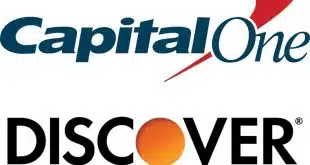By Jim Daly
@DTPaymentNews
The Federal Trade Commission is investigating Visa Inc.’s practices involving EMV debit card transaction routing, Visa disclosed Tuesday. And the Federal Reserve earlier this month posted guidance about EMV debit routing that, according to retailer trade groups, was issued in response to their objections to Visa’s practices at the point of sale.
The eight merchant associations on Wednesday sent a letter to Visa chief executive Charles W. Scharf, who plans to step down in December, and his successor, Alfred Kelly, demanding to know what Visa will do about what they call Visa’s “Fed rule violations.”
A Visa spokesperson indicated the company might have a statement for Digital Transactions News, but as of mid-afternoon Wednesday no statement had been received. The FTC says it has no additional comment on the matter.
All of the governmental actions center on the 2010 Dodd Frank Act’s Durbin Amendment, which set price controls on the interchange big debit card issuers can receive, and requires debit cards from issuers of any size to offer merchants a choice of at least two unaffiliated networks for transaction routing. The amendment bans networks, issuers, and processors from interfering with merchants’ choices.
In the wake of the card networks’ EMV liability shifts of October 2015, a number of merchants accused Visa of subverting their preference for routing transactions to PIN-debit networks and instead sending them to Visa by having confusing screen prompts appear on POS terminals when Visa-branded chip debit cards are inserted. The prompts typically ask the cardholder to pick one of two options for routing. Wal-Mart Stores Inc., The Kroger Co., and The Home Depot Inc. have sued Visa over the issue, though Home Depot also has accused MasterCard Inc. of similar practices.
News about the FTC probe came in a brief notice Visa included in its annual report for fiscal 2016 ended Sept. 30 that Visa filed with the Securities and Exchange Commission. The report says the FTC notified Visa on July 28 that it “is conducting an investigation into whether Visa’s requirements for EMV chip inhibit merchant routing choice for debit card transactions.” Visa said it is cooperating with the FTC.
The same filing says the FTC closed its inquiry “regarding potential violations of certain regulations associated with the Dodd-Frank Act focusing on Visa’s optional PIN Debit Gateway Service.”
The Federal Reserve, meanwhile, posted on Nov. 2 an online notice about EMV debit card transaction routing in question-and-answer form. The Q&A occurs in a section of the Fed’s Web site devoted to Regulation II, the formal name of the Fed rule implementing the Durbin Amendment.
To the question: “Does a payment card network comply with [Regulation II] if it requires the merchant to allow the cardholder to make the choice of EMV chip application, one of which routes only to a single network?” the Fed’s answer is “No,” and it notes that no one can “inhibit the ability” of a merchant to make the routing choice. “A payment card network inhibits a merchant’s ability to route electronic debit card transactions if it … requires the merchant to allow the cardholder to make the choice of EMV chip application on a debit card, where one application routes only to a single network,” says the Fed response.
A Fed spokesperson tells Digital Transactions News by email that the central bank posted the “clarifying guidance,” which does not name any network, because EMV debit routing was a recurrent topic between the Fed and industry representatives. While the Q&A is in an obscure section of the Fed’s Web site, the spokesperson says the Fed announced it on its “What’s New” page when it was posted, and noted it in “subsequent exchanges between Fed staff and interested parties.”
The merchant trade groups say the Fed’s “declaration” came in response to “willful steps taken by Visa to circumvent merchants’ legal right to choose the network over which a debit transaction will be routed,” according to one of the groups, the Arlington, Va.-based Retail Industry Leaders Association (RILA). The groups asked Visa to “immediately respond with steps to remedy this issue.”
The letter’s other signatories are the Merchant Advisory Group, National Association of College Stores, NACS (the National Association of Convenience Stores), National Grocers Association, National Retail Federation, Petroleum Marketers Association of America, and the Food Marketing Institute.
As part of the controversial Dodd-Frank law, the Durbin Amendment’s survival could be in question next year when Republicans take control of the White House and will retain majorities in both houses of Congress.



